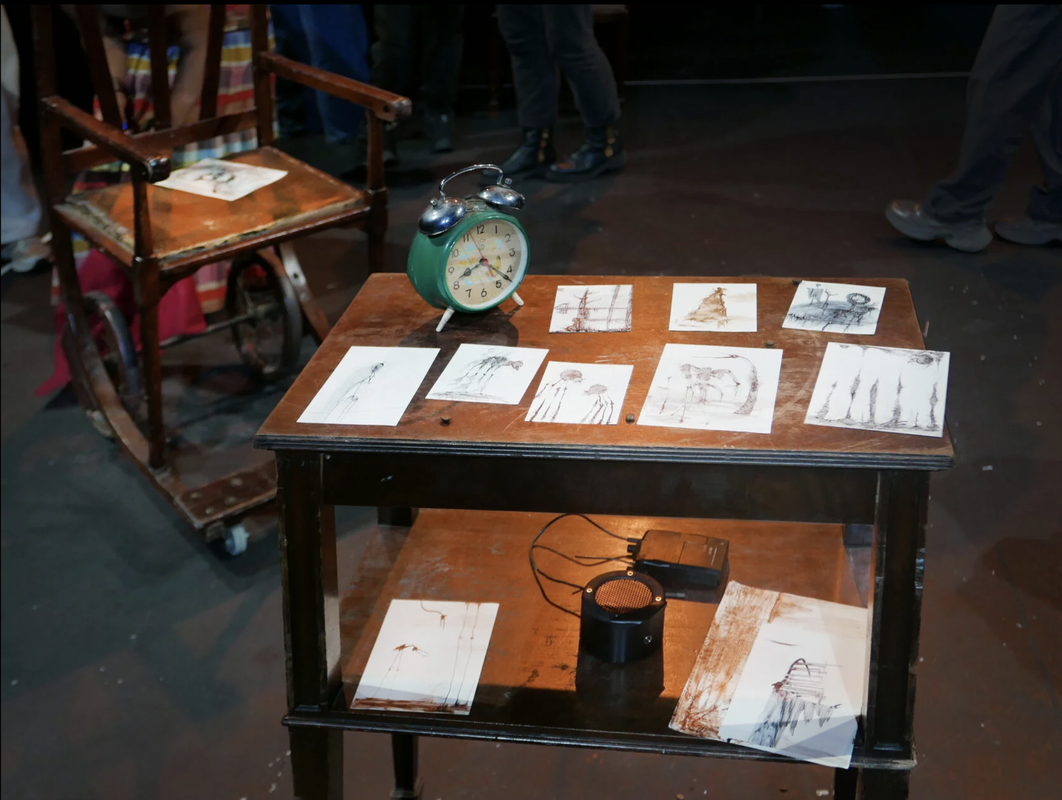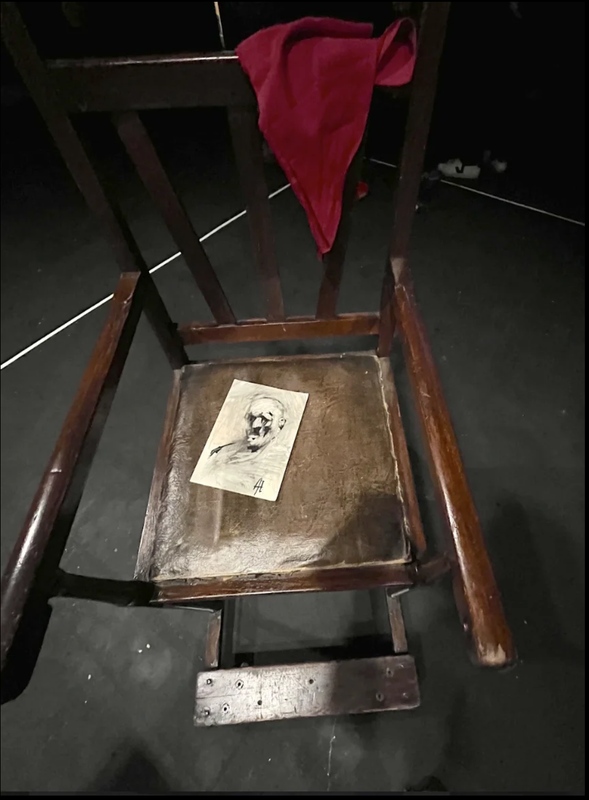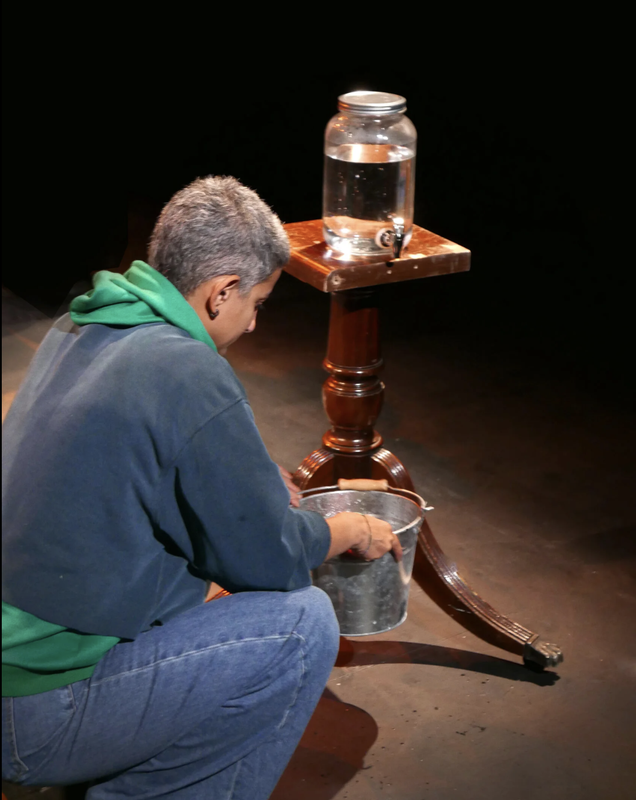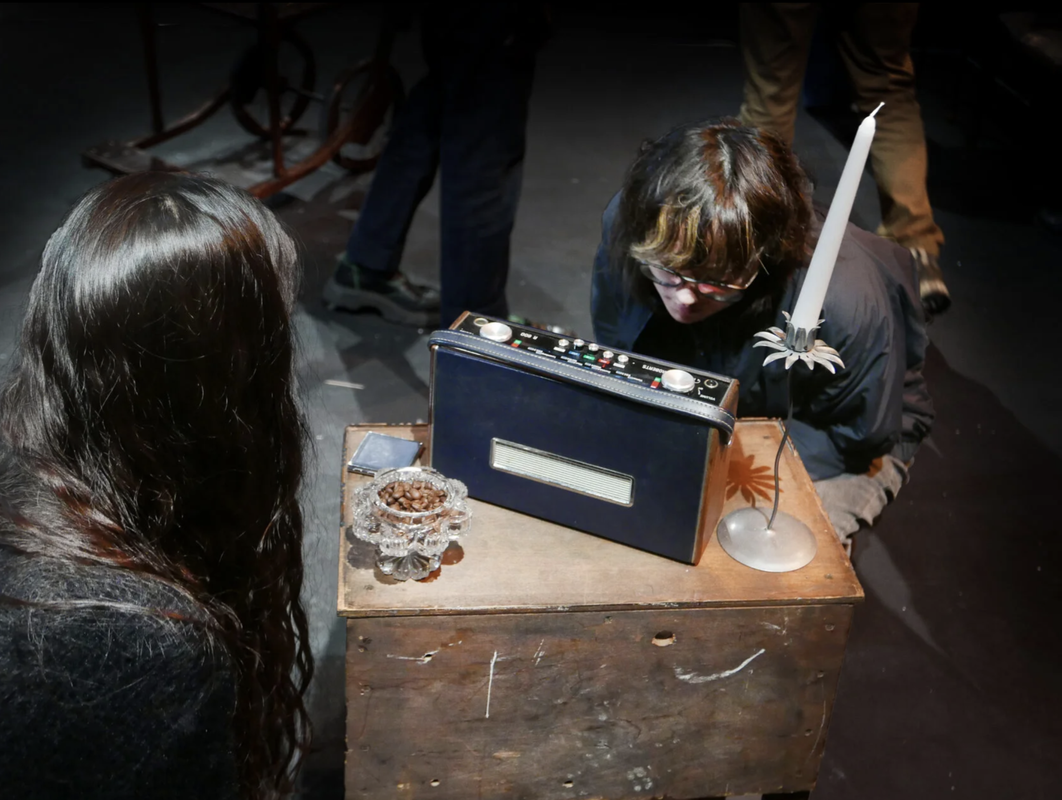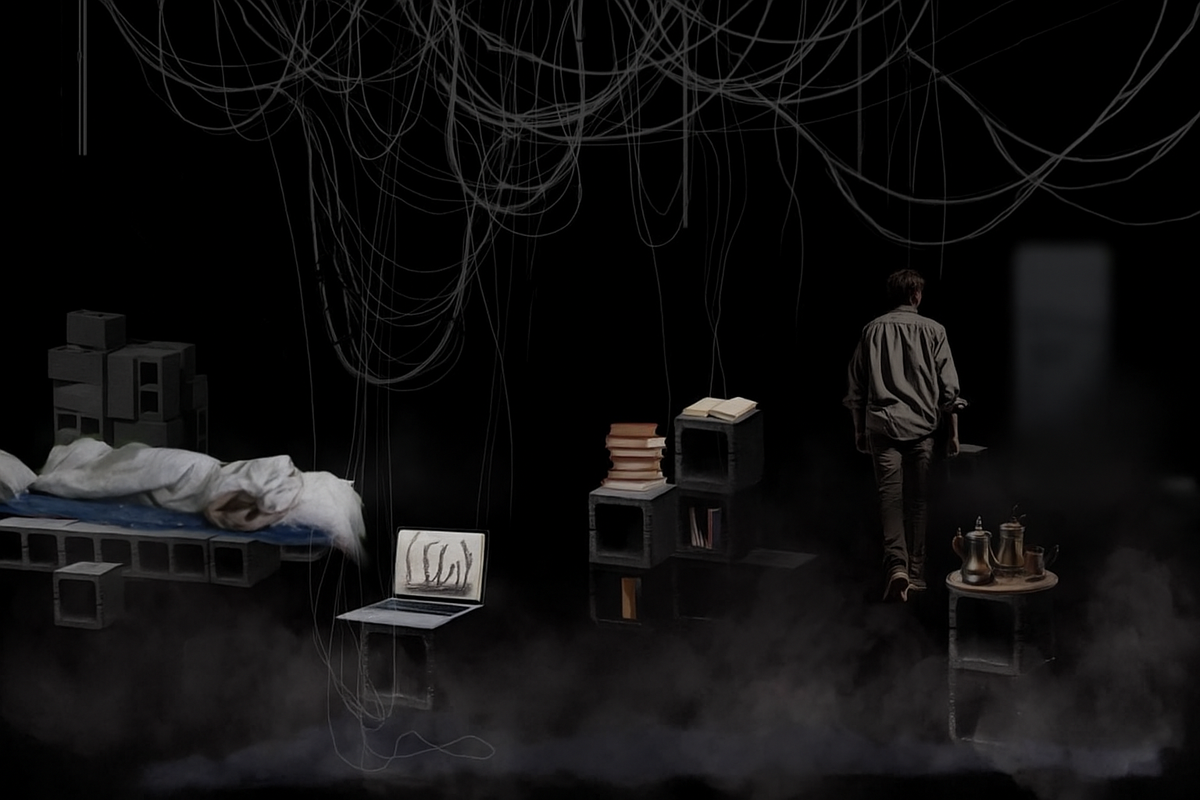
The first part of the project, titled Visceral Impact of Distances Memories, is conducted with the support of RCSSD, using performative methodologies to collect personal stories of wartime experiences. The oral histories are developed in collaboration with participants by exploring sense memory, wherein the stories are pieced together from the sounds of everyday life, mundane existence, ruptures induced by war, and the haptic memories of surfaces and objects. This study focuses on the role of the imaginary in our perceptions, particularly the visceral sound experience as an image enhanced by tactile sensations. The project explores how sounds shape our personal stories and influence our perception and experience of memories through sound. The outcome of this investigation is a physical space where the audience encounters ‘lost’ objects that reveal events from their perspective. The visitor activates the sound by picking up and holding objects, constructing the individual story from the related items in the space. Immersed in the imaginary soundscape of migrant narratives, objects surrounding us no longer retain their ordinary meaning and function, instead falling into immobility. This concept is partly inspired by anthropomorphic characters from Hans Christian Andersen’s tales.

The research study investigates new methodologies for documenting memories and the histories of traumatic pasts, exploring the role of imagination in our perceptions, particularly the visceral experience of sound as an image. It examines the journeys of Ukrainian refugees who were forced to migrate from the Russian invasion to their new homes in the UK.
Primarily focusing on the stories of Ukrainian refugees in London, this research aims to examine how narratives, as practices of sensemaking, are embedded in social, cultural, and historical contexts.
The research is conducted using a practice research methodology that incorporates performance workshops with refugees to uncover unspoken stories and assist their transition into a new society, placing this social group on the sociocultural map of the city.
The pilot project focuses on the role of the imaginary in our perceptions, particularly the visceral experience of sound as an image enhanced by tactile sensations. It aims to develop a performative methodology for documenting memory through devising processes with participants, using sound as a prompt to tell their stories.
This project explores the fascinating ways in which sounds shape our personal stories and influence how we perceive and experience our memories.
We're committed to bringing together the Ukrainian migrant community in the UK by documenting refugees’ journeys and helping to create a shared public memory. We hope the research will enhance the integration of Ukrainian refugees into London's cultural landscape, fostering links between scattered communities and cultural institutions.
The project intends to investigate the various ways of creating memory through direct interactions with sound and objects. It establishes a safe environment for individuals to connect with and examine their personal histories, offering a reflective space that may support emotional recovery after the trauma of war.
